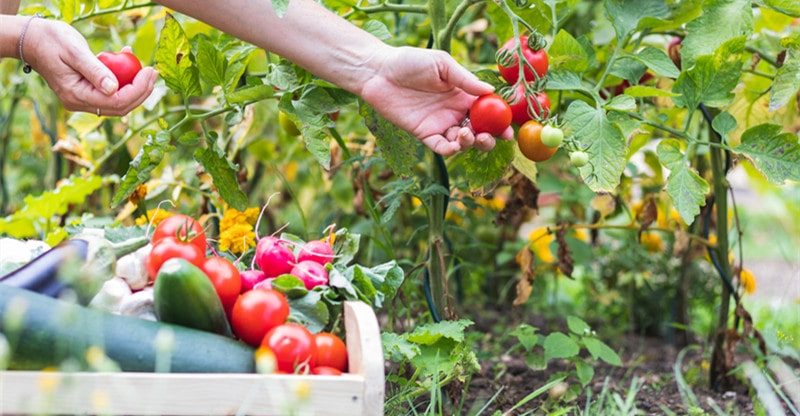5 Tips for Growing the Perfect Vegetable Garden
There is so much gratification that can come from growing vegetables at home. Whether you have a large garden space, a balcony or a sunny window, you can have the perfect vegetable garden. There’s no guarantee that every year is going to be a stellar year, but there are some things you can do to help you grow the perfect vegetable garden.
1. Pay Attention
There is non-substitution for good old-fashioned observation. If you pay attention to your garden and how it’s growing you’ll notice weeds, pests, moisture levels and so much more. If you hire help from a landscaper or weed spraying contractor, be sure to let them know that they’ll need to pay attention around your garden too.
And when you make an observation, you’ll need to take action if necessary. Get rid of eggs on leaves, employ pest management as necessary, turn on a soaker hose, etc.
2. Plant Spacing
At the beginning of the season, whether you’re planting from seed or from transplants, leaving enough space between plants is vital. Remember, your vegetables won’t stay small for very long. It’s best to follow plant spacing recommendations. Crowding plants too closely will have them competing for light and nutrients, which will ultimately stunt or slow the growth of your plants.
3. Location, Location, Location
Choosing a location for your garden requires some observation. If you want to grow sun loving plants like summer squash, tomatoes, cucumbers and okra, choose a spot that has full sun for at least six hours a day.
Some shade is fine, but sun loving plants will do much better with far less shade than sun. There are many plants that enjoy the partial shade, so look into the needs of what you want to grow to help inform your decision.
4. Soil Preparation
The key to growing beautiful and bountiful vegetables is soil health. When your soil is happy and healthy, you’ll have nutrient-dense veggies with fewer pest problems. Start with a soil test to see exactly what your garden soil is missing so you can add it.
Bone meal, alfalfa and compost are just a few options for getting your soil ready for your vegetables. Be careful when tilling or turning over garden soil so that the beneficial microbes in the soil stay happy and healthy enough to help your plants take up minerals and nutrients.
5. Water Wisely
All plants need air, water and soil to live a good life. Too much of a good thing can become a bad thing. Be careful not to overwater the garden. Adding some mulch can help you conserve water and better balance temperatures.
Although Mother Nature waters from the top down, you want to avoid getting the leaves wet. This will help to prevent certain plant diseases. Periodically apply fertilizer as well. Some fertilizers can even be applied while you water.
These tips can be applied to any size garden, whether it’s in-ground, raised beds or containers. Gardening is an ever-evolving learning experience that is different every season. Growing the perfect vegetable garden is sure to put a smile on your face and fresh veggies on your plate.



